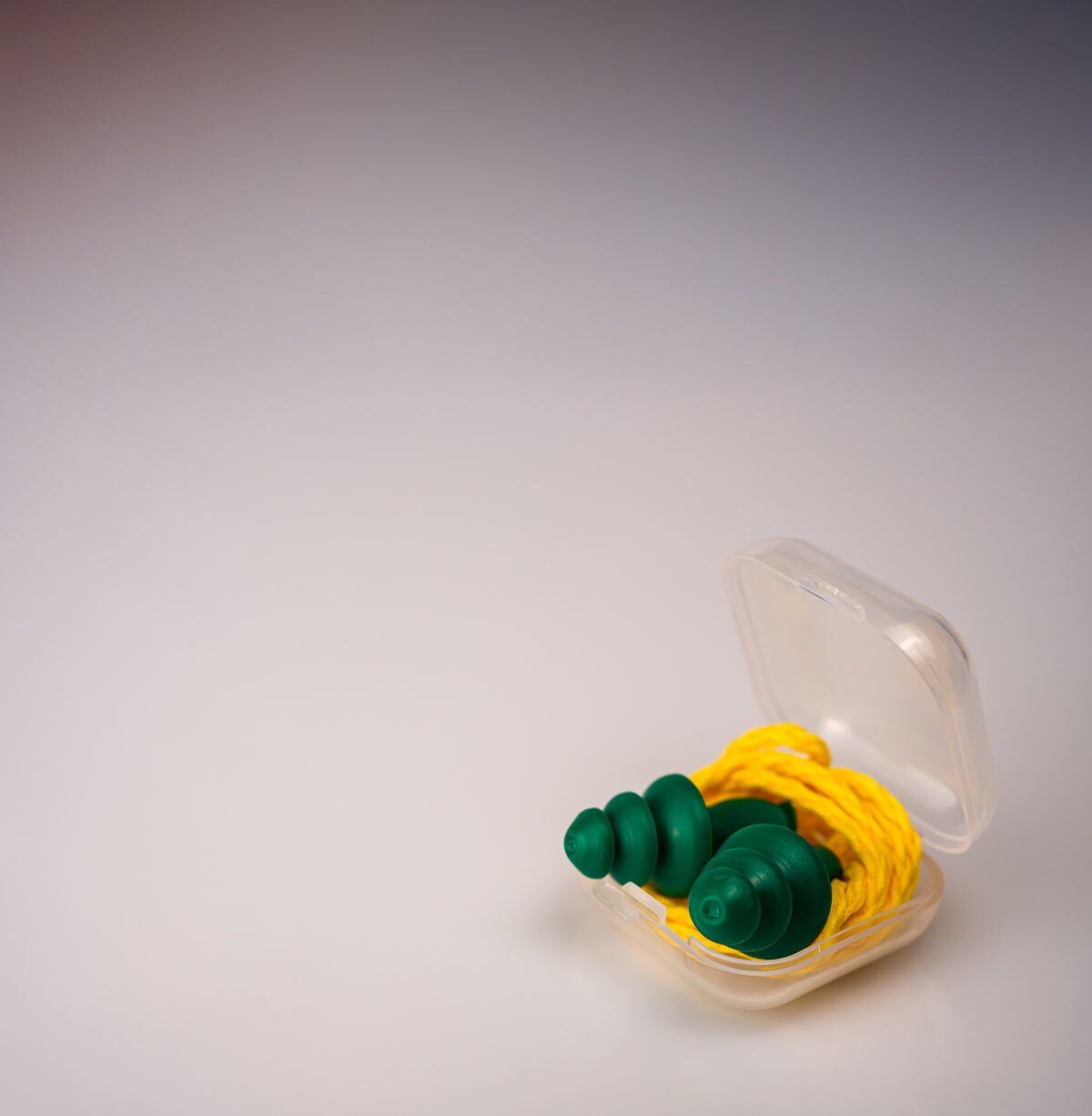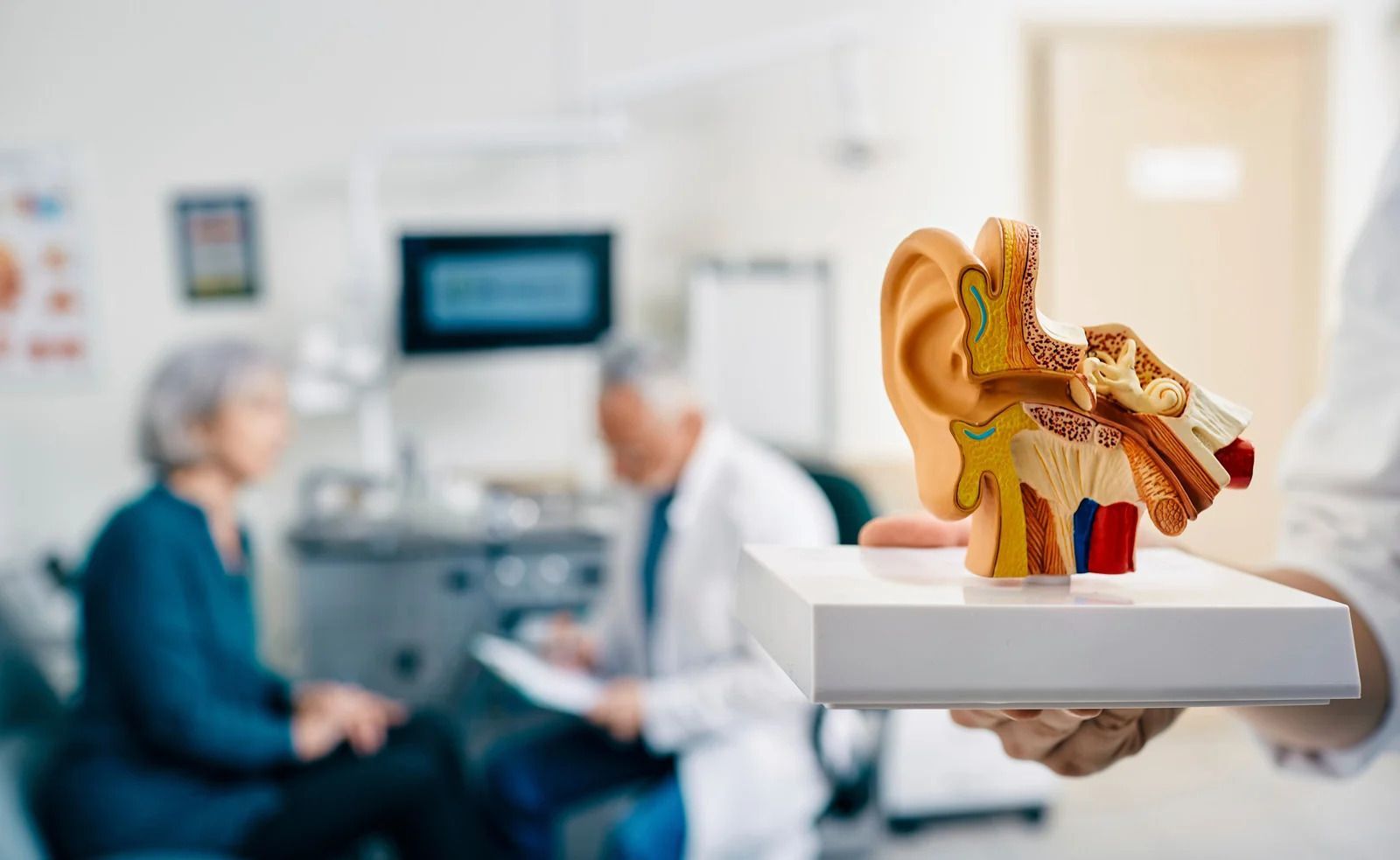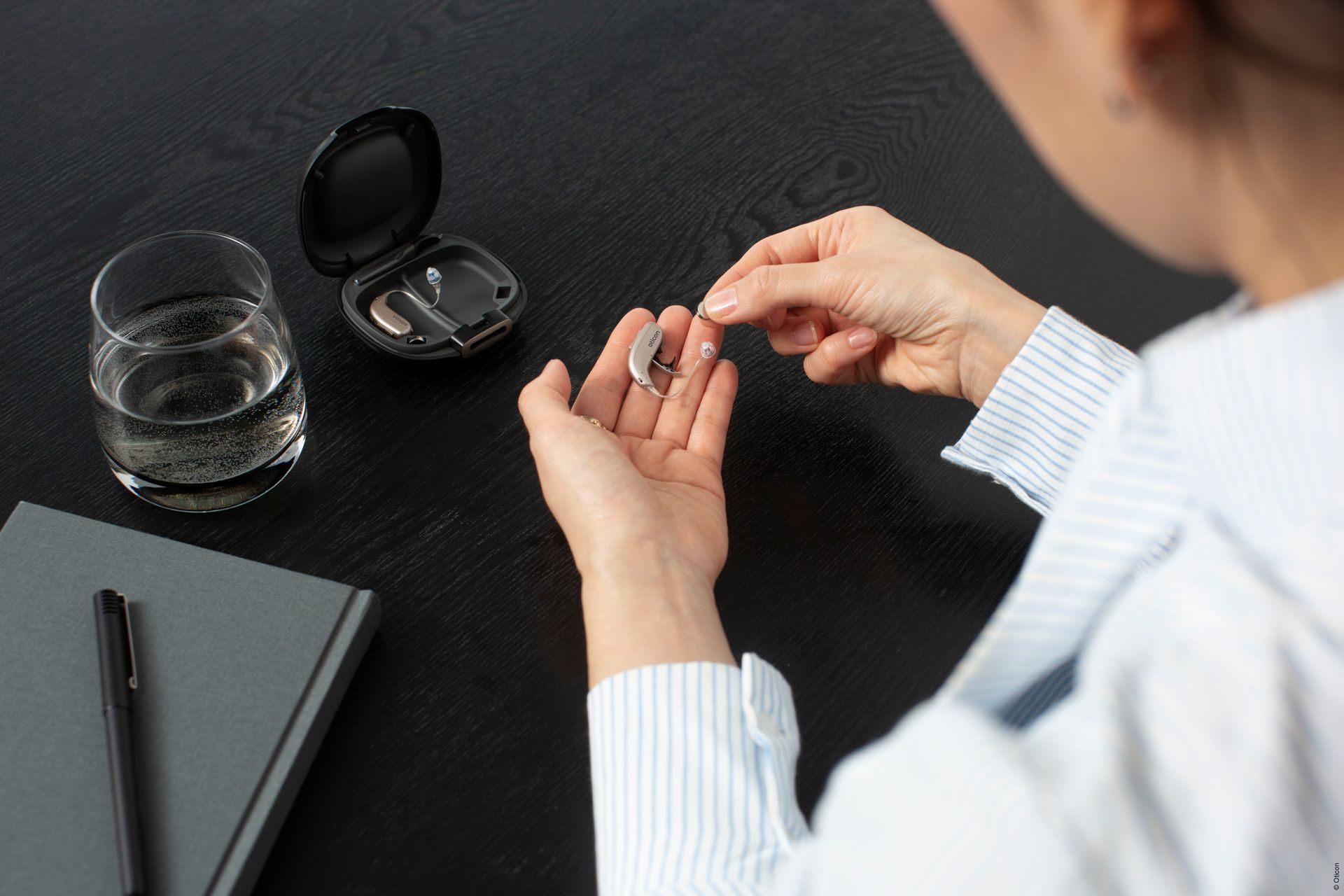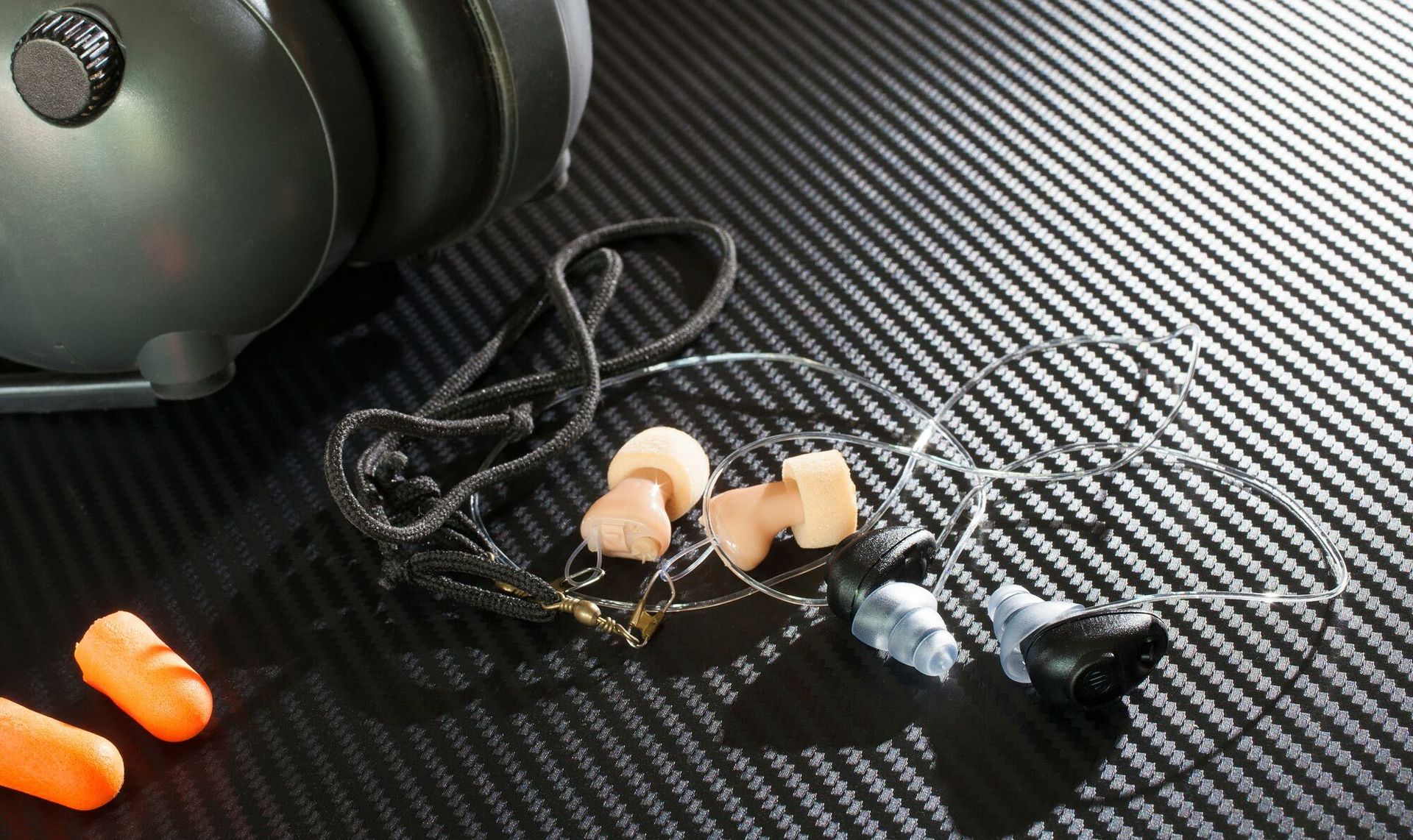Top Questions about Hearing Aids
Top Questions about Hearing Aids
Hearing aid technology has been around for a while, but it continues to advance at an
incredible pace. Today, hearing aids are nothing like the ones your grandparents used.
Given the pace of technological change, there are many misconceptions and questions about hearing aids. Our team of audiologists in Lethbridge strives to keep up on all advancements, and we will take the time during your appointment to provide as much information as we can.
Here are the questions that we often hear about hearing aids, but the list certainly isn't exhaustive. You probably have a question that isn't on this list, so send us a message with your questions about hearing aids.
What's the history of hearing aids?
To be honest, this isn't a common question we hear about hearing aids. But it is a topic that helps to explain how hearing aids operate today – and the incredible pace of change that we've seen in the technology over the past few decades.
Early hearing aids
While many devices have been used to augment hearing throughout history, some of the earliest devices that have similarities to modern hearing aids were known as acoustic horns or ear trumpets. These devices – which date back to the 17th century – had cones that were held on the ears and sent sound into the ear through small tubes.
Transformation into modern hearing aids
Hearing aids not only collect sound, but they also process the sounds to match the wearer's hearing challenges. Early electric hearing aids used a carbon powder to conduct electricity between a rear conductor and a diaphragm. They were often quite large as they required multiple microphones to amplify sound.
The rapid advancement of digital technology enabled hearing aids to shrink in size while improving both the collection and processing of sounds.
There have been hundreds of types and styles of hearing aids over the last century. Recent innovations – such as better noise management in different environments and more natural-sounding output – are largely invisible, but they improve the comfort and performance of the devices.
How do hearing aids help?
Hearing aids work by improving the clarity and strength of sound waves entering the ear. Although they cannot treat all forms of hearing loss, they are effective in treating hearing loss caused by damaged sensory cells. These damaged hearing cells require sound to be at a louder volume to convert it to electrical signals, so hearing aids collect and process the sound to offset the impacts of the damaged cells.
In some cases, the damage to the hearing cells is so significant that the brain has difficulty distinguishing between sounds, especially in a noisy environment.. This can make it challenging for them to hold conversations in loud rooms. Hearing aids can be programmed to deliver stronger and clearer sounds that are important for speech understanding while reducing background noises.
Hearing aids can also help wearers gain relief from tinnitus by subtly amplifying background sounds to help reduce the awareness of tinnitus. In more severe cases, hearing aids can be programmed to produce white noise in the ear to mask the sound of tinnitus.
What's the best hearing aid for me?
Again, this isn't a question that we hear aloud. But it is the core question that we cover when providing our recommendations.
At Audiology First, we are committed to creating a personalized treatment plan for you based on the results of your hearing test. Your hearing test will not only include a hearing baseline and other conventional tests, but we also use diagnostic equipment that you likely won't find anywhere else.
Our hearing assessments are catered to your specific hearing challenges, and you will receive a detailed consultation right after your tests. We will take our time discussing your results so that you can make informed decisions about your treatment.
There is a wide variety of technologies and styles of hearing aids, so we will recommend the best options after we have learned as much as we can about your hearing challenges and lifestyle.
What degree of hearing loss requires a hearing aid?
Hearing aids are usually effective in treating mild to moderate hearing loss. Severe hearing loss, often described as the inability to understand normal speech, can be treated with hearing aids but may require different styles or cochlear implants. For profound hearing loss (the inability to hear loud noises like jet engines), hearing aids are usually not an effective treatment.
But the answer depends on more than the degree of your hearing loss. The type of hearing loss and its impact on your daily life will inform us of the best options for you. Your audiologist will review the results of your hearing test and discuss if you can benefit from a hearing aid.
How expensive are hearing aids?
Like most modern technology, the price range of hearing aids depends on the level of technology inside the device. Various sizes and styles of hearing aids are available for most budgets, but more expensive devices usually feature more advanced sound processing.
The features that you would benefit from depend on the type and degree of your hearing challenges. Our recommendations are always based on matching you with technology that will make the biggest difference in your life while fitting your lifestyle and financial needs.
In Alberta, hearing aid funding may be available for you. We will discuss what programs you may be eligible for during your consultation.
What if I don't like my hearing aids?
It often takes time to get used to new hearing aids. While you adjust to new routines with your hearing aids, your brain adapts to the different sound signals it is receiving.
We offer a 28-day trial on hearing aids with no money down. The goal of this trial period is to let you experience the devices at home, work or anywhere else in your daily routine.
Our audiologists will work closely with you to help you acclimate to a new way of hearing. After you get new hearing aids, we will schedule follow-up appointments to troubleshoot any challenges and make any adjustments to improve comfort. Our ongoing attention aims to help you get the most out of your hearing aids – right after you receive them to years later.
It is important to let us know what challenges or annoyances you are facing with your hearing aids. Contact us to schedule an appointment to speak with an audiologist.
I have more questions about hearing aids!
Send us a message if you have any questions about hearing aids not covered here. We always take the time to listen to your comments and questions, so you can learn more about hearing technology and get the most out of your hearing aids.









